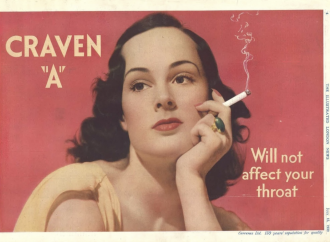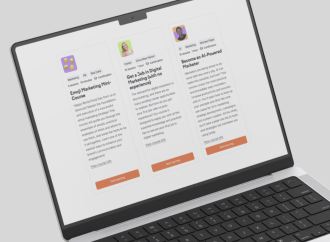Creating a strong brand goes beyond having attractive visuals or catchy slogans. The real key lies in brand personality—the human-like traits that make your business connect with customers on a deeper, emotional level. If you’ve ever wondered about brand personality or how to develop a strong one, this guide is here to help. We’ll walk

Creating a strong brand goes beyond having attractive visuals or catchy slogans. The real key lies in brand personality—the human-like traits that make your business connect with customers on a deeper, emotional level. If you’ve ever wondered about brand personality or how to develop a strong one, this guide is here to help. We’ll walk you through the five main traits identified by marketing expert Jennifer Aaker: sincerity, excitement, competence, sophistication, and ruggedness, and show how they shape your brand’s character. By the end, you’ll know how to find your brand’s personality and connect more authentically with your audience, set yourself apart from competitors, and make your marketing more meaningful.
Understanding Brand Personality
Brand personality refers to the human qualities that people associate with a business. Think of your brand as a person at a party: Is it the friendly, supportive type that offers advice, or the adventurous one who lights up the room with bold stories? These impressions are crucial because consumers often make buying decisions based on emotional connections, not just logical reasons. Brand personality helps create a consistent voice that resonates across marketing, product design, and social media.
When done right, brand personality helps define your identity in a crowded market. In a world full of similar products, emotional connections can make all the difference in a purchasing decision. Having a well-defined personality also gives you a clear template for future decisions. Whether your brand is laid-back and humorous or elegant and refined, staying consistent will help avoid confusion and make sure your message resonates across all touchpoints. The key is choosing traits that align with your values and the emotional connection you want to build with your customers.
Why Brand Personality Matters
Your brand’s personality plays a crucial role in building customer loyalty, encouraging word-of-mouth, and even justifying premium prices. Think of Apple’s focus on creativity and simplicity, which has made fans eager to invest in its products. Or consider Jeep, which uses ruggedness to appeal to customers seeking adventure and durability. In each case, the brand’s personality builds an emotional promise that influences how customers perceive it.
Without a clear brand personality, you risk confusing your audience. If your social media is playful, but your product packaging feels too formal, customers might not know who you are. A consistent brand personality builds trust by ensuring your audience knows what to expect from every interaction. Whether your brand is about competence, excitement, or sincerity, staying true to your personality ensures that your customers feel like they understand you, creating a deeper connection.
The Five Core Brand Personality Traits
- Sincerity
Sincerity is about being warm, honest, and down-to-earth. Brands that embrace sincerity often highlight transparency, like sharing behind-the-scenes content or writing personal notes on their products. This builds trust in an age where consumers want genuine connections. For example, a local coffee shop that highlights the farmers who supply their beans or a skincare brand that openly shares its ingredient sourcing fits this personality. The key to sincerity is consistency—ensure your brand maintains a friendly, authentic voice across all channels. Switching to a sarcastic or secretive tone can break the trust you’ve worked to build. - Excitement
Excitement is characterized by energy, boldness, and playfulness. Brands with this personality often create buzz with events, bold campaigns, or new product launches that generate excitement. This trait works especially well for younger audiences or those seeking something fresh. Brands in the athletic or fashion industries, for example, may use bright colors, adrenaline-fueled marketing, and a lively tone to attract attention. The key is to stay consistent—don’t switch from a daring, high-energy brand voice to something formal and corporate. Stick to the fun, fearless persona if you want to keep your audience engaged. - Competence
Competence reflects intelligence, reliability, and a proven track record of success. Brands in sectors like finance, tech, or professional services often adopt this personality. These brands position themselves as experts, offering solutions to complex problems. Competence-driven brands often use muted color palettes—think blues, grays, or whites—to convey trust and stability. To show competence, share data-backed achievements, case studies, and expert endorsements. But be careful not to become too impersonal—make sure to keep a human touch, such as showcasing your team’s expertise or offering personalized customer service. - Sophistication
Sophistication is about elegance, luxury, and high-end appeal. This trait is common in brands that cater to a more exclusive audience, such as luxury fashion brands, upscale hotels, or fine wines. Sophisticated brands often use sleek, minimalist designs, refined color palettes (like black, gold, or silver), and carefully chosen language to convey a sense of exclusivity. If your brand aims for sophistication, everything from your website to your product packaging should reflect high quality. However, remember that sophistication is subtle—too much loud or flashy marketing can undermine the refined image. - Ruggedness
Ruggedness speaks to strength, durability, and a connection to the outdoors. Brands with this personality often cater to people who enjoy tough conditions, like off-road vehicles, outdoor gear, or denim brands. The messaging focuses on reliability and readiness for adventure, often featuring nature-inspired visuals. If you want to adopt a rugged persona, make sure your brand visuals show real-world usage—think of outdoor activities like hiking or off-roading. But be careful not to alienate people who prefer a more inclusive or versatile approach to ruggedness. Balance is important, especially in ensuring your brand appeals to a wide range of adventurous individuals.
How to Find Your Brand’s Personality
- Reflect on Your Origins and Mission
Start by considering why you created your brand. Is it driven by a desire to make a positive impact, suggesting sincerity? Or do you offer an innovative product that might suit an exciting or competent vibe? The values and mission that inspired your brand are key clues to discovering a personality that feels natural and authentic. - Research Your Audience
Your brand’s personality should align with your audience’s preferences and values. Conduct surveys or talk to potential customers to learn what resonates with them. If they’re outdoor enthusiasts, a rugged brand personality might be a good fit. If they prefer something more refined, a sophisticated approach could work better. This ensures that your personality matches what your target customers expect and appreciate. - Test with Adjectives and Hypothetical Messaging
Make a list of adjectives like “friendly,” “innovative,” or “bold,” and categorize them according to the five main brand traits. Then, create some sample marketing messages using these adjectives and show them to colleagues or customers. If the messages resonate, you’re on the right track. If not, refine your approach. - Compare with Competitors
Look at how your competitors are positioning themselves. If everyone in your market is serious and formal, a more playful brand might help you stand out. Conversely, if everyone is using an energetic or edgy approach, a calm and sophisticated persona could differentiate you. Don’t just copy what others are doing—find a unique angle that complements your mission and meets customer needs.
Maintaining Consistency Across All Touchpoints
For your brand personality to be strong, it needs to appear consistently across every touchpoint—your website, social media, packaging, customer service, and beyond. If your brand is about excitement, keep that energy alive through vibrant social media content and engaging promotions. If competence is your focus, keep messaging clear and data-driven. Consistency in how you present your brand helps build trust and loyalty.
Evolving Over Time Without Losing Identity
While it’s natural for a brand’s personality to evolve over time, changes should be gradual and transparent to avoid confusing loyal customers. For example, a small handmade soap brand may start with a sincere and down-to-earth personality but evolve into a more competent brand as it grows and incorporates lab testing. The key is to introduce new traits while staying true to your brand’s core.
When a major rebrand is necessary, like after a merger or shift in focus, make sure to explain the reasoning behind it to your audience. A brand’s personality can evolve, but keeping core elements, like tone or visual cues, helps maintain continuity.
What is Your Brand’s Personality?
By now, you should have a better understanding of what brand personality is and why it’s important for building strong customer connections. Each personality trait—sincerity, excitement, competence, sophistication, and ruggedness—appeals to different emotional needs and influences how people perceive and engage with your brand. Finding your brand’s personality involves understanding your mission, your customers, and your competition. It also requires testing different adjectives and making sure your personality is consistently applied across all channels.
A well-defined, authentic brand personality can foster loyalty, build trust, and differentiate you in a crowded market. It’s not just about choosing traits—it’s about being consistent and true to who your brand is and what your audience needs. When your brand personality aligns with your customers’ expectations, you’ll create a lasting emotional connection that keeps them coming back.

















Leave a Comment
Your email address will not be published. Required fields are marked with *